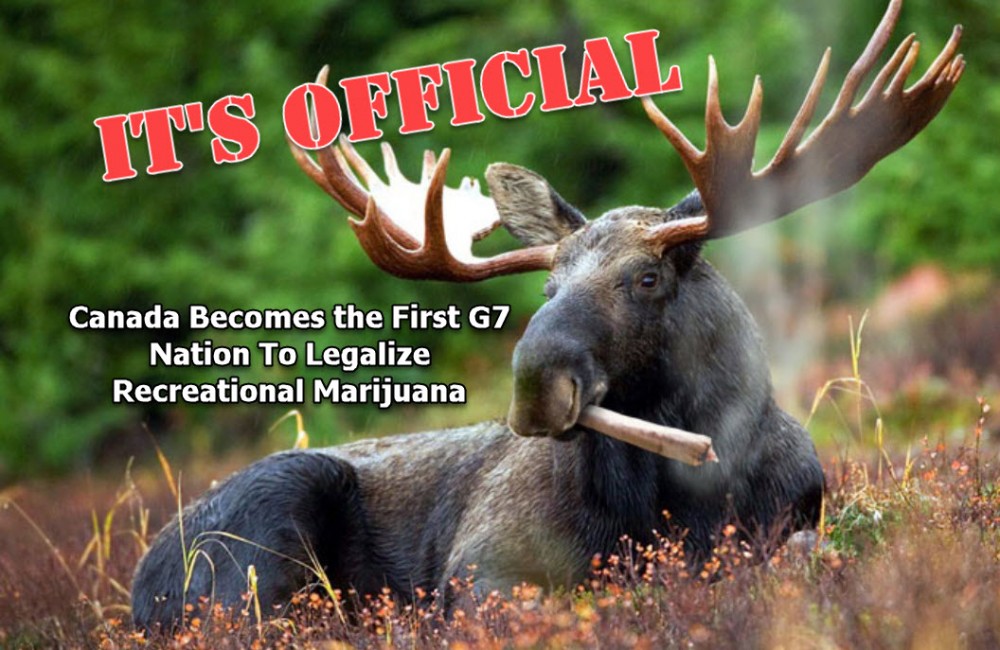8 Canadian Universities Get Green Light To Grow Cannabis
While some Canadian universities earlier said that cannabis will still be blatantly forbidden on campus, 8 others have received the green light from Health Canada to grow cannabis for scientific reasons.
The licenses granted would allow these schools to take a closer look into cannabis, which was just legalized in Canada for recreational use last October 17. Some academic institutions were already granted their licenses prior to legalization, and will be progressing into licenses requiring less restrictions later on.
One of these schools, the University of Guelph, was granted a license in September. According to Max Jones, assistant professor in agriculture, he intends to study the genetics of cannabis and how to maximize cultivation of the plant. He also wants to look into creating a gene bank, which can be used by breeders as well as researchers. To do this work, Jones has been given a license that would permit the University of Guelph to study tissue cultures from cannabis, although it would require a different license to legally grow the plant into maturity. The current license he has requires him to destroy the plants as soon as the research has been concluded.
In the future, the University of Guelph will have a different license which would be less limiting, Jones says. “By having this on campus, we can train students more hands on,” he explains. “We can and have done research at the companies’ facilities, but that isn’t practical because they are so far away.”
As the University of Guelph transitions into cannabis research, getting the right licenses will be the first major steps needed, considering that the school has had a long history in horticulture. They intend to start construction of the Guelph Centre for Cannabis Research in 2019, where, if all goes as planned, they will be cultivating cannabis plants to maturity for research. “It’s an exciting time to be in the plant sciences because the cannabis industry’s funding a lot of research that most industries wouldn’t fund,” he said.
Jones, together with his team, will be growing smaller plants at a campus facility in the meantime, with a focus on tissue cultures as part of their early work. “We are growing pieces of plants or whole plants in vitro and mass producing them that way,” Jones says. He adds that two Canadian cannabis businesses, Canopy and Up Cannabis, have contributed some funding and plants needed for the research.
“Because it’s in tissue culture, (the plant) comes out sterile, so they’re free of all diseases and insects,” Jones explains. “This is important in the cannabis industry because they don’t really have many pesticides to use.”
Niagara College is another academic institution granted a license to grow pot to maturity. The school now has their first batch of students enrolled in a commercial pot production graduate certificate program. The course enables students to learn about the entire life cycle of cannabis, as well as the necessary steps following maturity including drying and harvesting. According to associate dean of environment and horticulture Al Unwin, once they have completed their studies, the license dictates that Niagara College is required to destroy all the cultivated cannabis.
The program, which is two semesters long, focuses on three main areas: knowledge of plant science, cultivation, and harvesting of cannabis, regulatory requirements, and the business aspect of the cannabis industry. Niagara College, just like the University of Guelph, were able to obtain their licenses according to the old regulations prior to legalization. Unwin added that they also eventually plan to get a new license with the current, less restrictive framework.
“It’s a very hands-on program and having the cannabis on campus is absolutely critical,” Unwin says. “The habits that are created here will be instilled in them as they move on to the industry.”
What About Consumption On Campus?
Although some academic institutions in Canada are taking more progressive forms of approach with cannabis consumption following legalization, others aren’t, or not yet at least. Just a handful of schools in British Columbia, Alberta, and Nova Scotia are open to less restrictive laws with regard to consuming cannabis on campus. On the other hand, some schools are considering permitted smoking cannabis in designated areas, the way tobacco is treated, but edibles won’t be allowed.
8 Canadian Universities Get Approved to Grow Research Marijuana from CannabisNet on Vimeo.
OTHER STORIES YOU MAY ENJOY...
CANADA LEGALIZES MARIJUANA, CLICK HERE.







